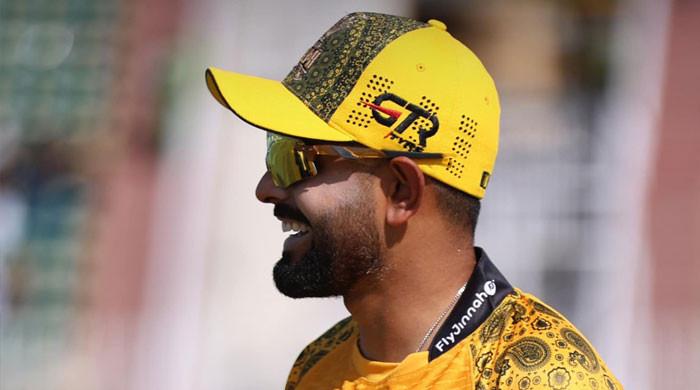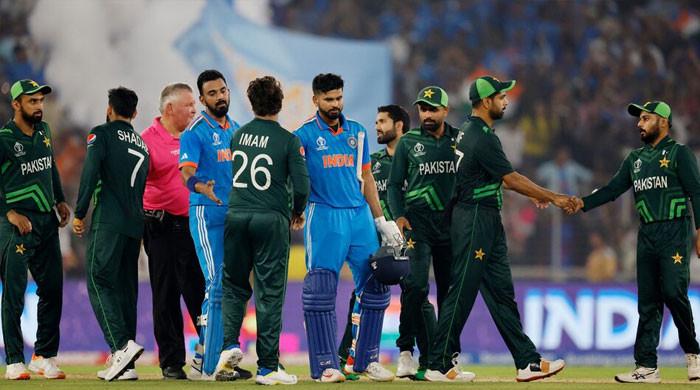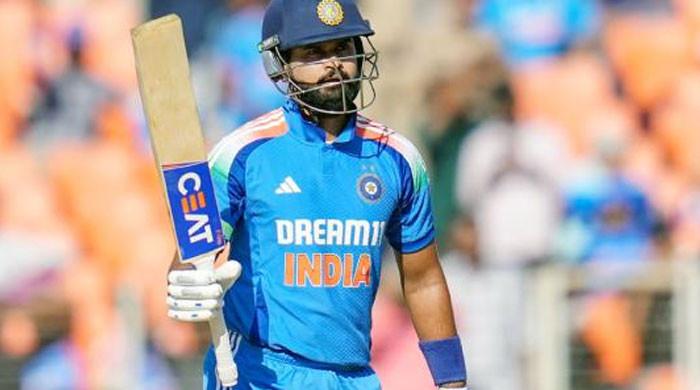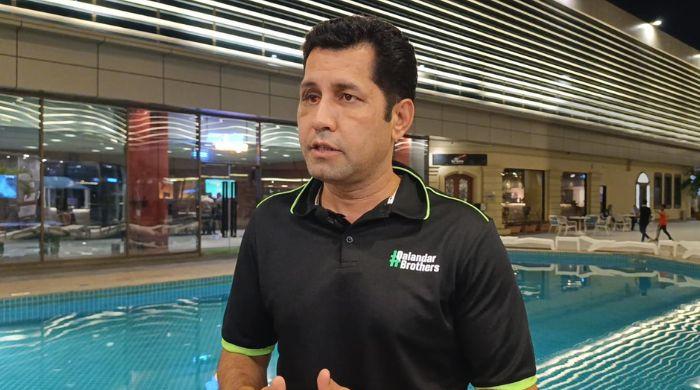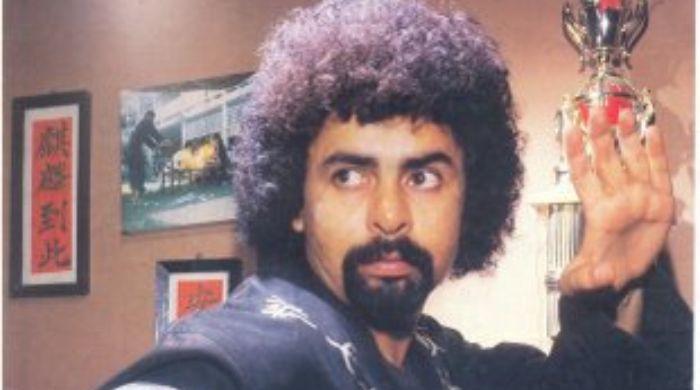Why are sports stars fitter than average Joes? Wellness expert Navin Hettiarachchi explains
A chat with Navin Hettiarachchi - the wellness expert who puts athleticism in athletes
June 08, 2020
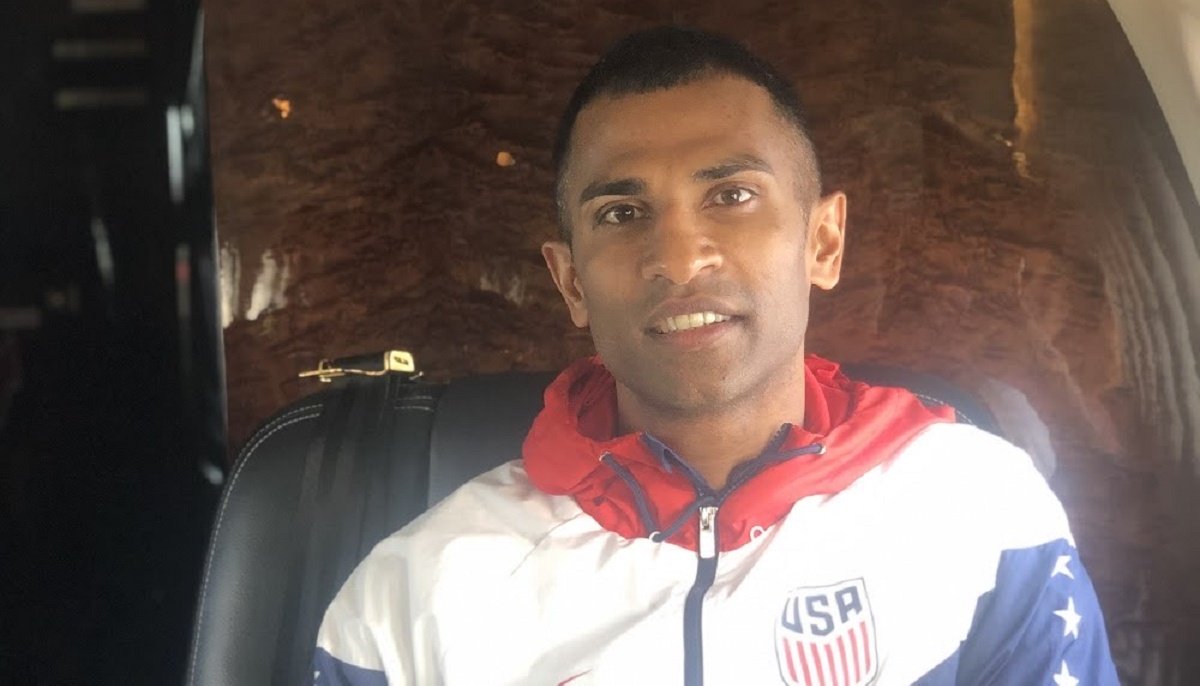
The fitness and athleticism of a layman, even if the most dedicated of gym rats, do not usually compare to that of professional sports stars - and for obvious reasons. While that's down to the amount of work top-class athletes put on their bodies, their ability also owes a lot to the round-the-clock expert advice and care that gets offered to them behind the scenes.
One such body and functionality expert is Navin Hettiarachchi - the director of health, wellness and performance for NBA franchise, Washington Wizards.
A Sri Lankan native, Hettiarachchi has been with the Wizards since 2003 and is responsible for creating strength, conditioning and injury prevention plans in order to improve the team's athletic performance for one of the most demanding sports.
With COVID-19 lockdown greatly limiting mobility and opportunities to train the right way, I caught up with Hettiarachchi recently to get some high quality health and fitness advice usually reserved for the John Walls and Bradley Beals of this world.
Here are the best bits from the interview:
Q: What does the director of health, wellness, and performance for an NBA team do? What does your job look like on a day-to-day basis?
Hettiarachchi: A big part of my job is injury prevention, which has four components:
1- Movement: First thing is to make sure that our players' bodies are moving the proper way. Everyday I try to take care of as many players as I can to make sure their bodies are aligned, there is no tightness or restricted movements in their body, and if they have any compromised areas, I do treatment on them to make sure they have full normal movement. It’s like a car that is taken to a maintenance shop. I am like a mechanic that makes sure the car is well-oiled and primed to run at its optimum level.
2- Performance: Based on the day, it is either performance improvement, recovery, or maintenance. If we don’t have a game that day, we work on performance improvement – it depends on the player and what that player needs, what the workload schedule looks like for the player (off season, in season, when is the next game, etc.). Performance recovery is what type of recovery modalities, exercises, or treatments we can do to get the player back to a full tank of gas fast. Performance maintenance is mostly in between games. In the middle of the season we do maintenance work.
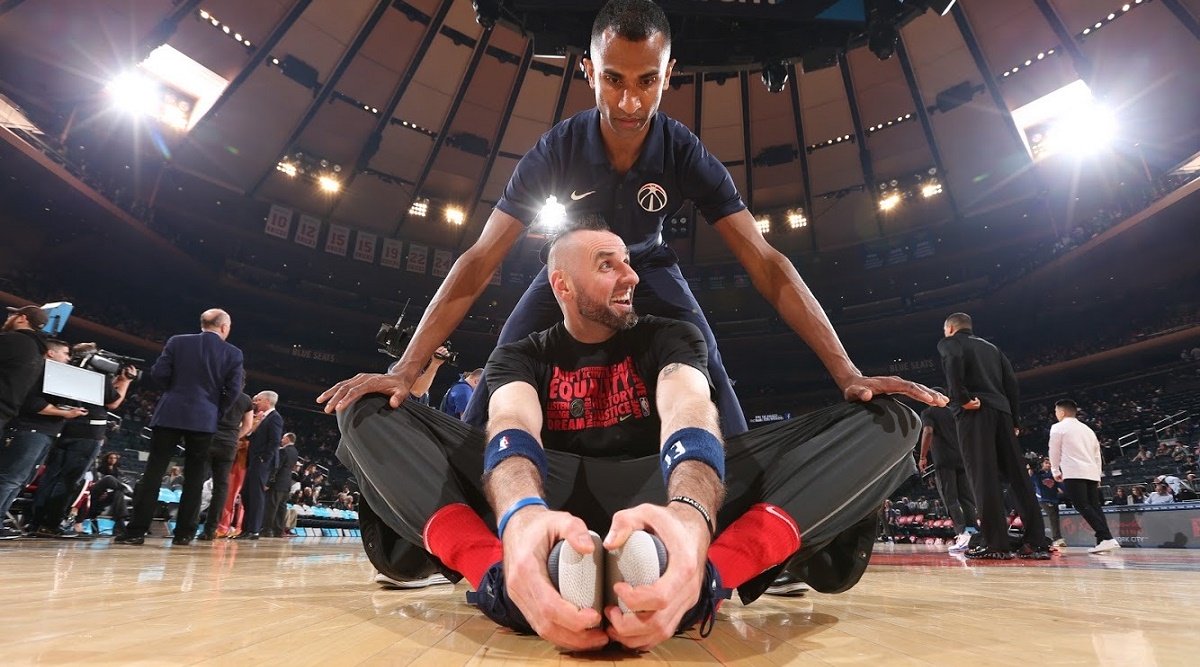
3- Sleep and nutrition: Here we ensure that our athletes are getting enough rest and sleep. I troubleshoot and assist them to get the proper rest they need to repair and recover their bodies. The nutrition is customised to each player's needs. I make sure to follow up and check up on the players to ensure they have all their nutritional needs met. This means I give them healthy options to eat while traveling, help them with customised functional medicine supplement protocols, customised shakes and drinks on game days and practice days, etc.
4- Big Brother support: This part of my job requires me to be there for them, especially because these are young kids. I help them navigate life off the court, listen and help them with day-to-day issues, provide them advice and just be there for them to listen and help them talk through things.
Q: Is it hard to work with pro athletes? Are they demanding?
Hettiarachchi: No, it’s really easy to work with pro athletes. They have a set routine and a set schedule. They are a part of your family and you know them inside out, so it is easy to understand and work with their needs and you know them for so long. They are not demanding. I’m more demanding of them because I want the best for them.
What is the most frequent advice you give them? Do they listen?
Hettiarachchi: My most frequent advice is locking in on sleep, eating healthy, and making sure you have time for yourself (silent time to reflect and focus). For the most part they do listen, it’s mostly the veterans who understand the value and follow this advice because they know how it affects their performance and how much longer they could stay and play better in the league – so they understand and follow more diligently than the younger players.
Q: How does athletes’ nutrition differ from regular people?
Hettiarachchi: My nutrition advice is customised to each player. We do a variety of tests to understand what players need and what they are lacking so based on those results, I tailor my advice and recommendations. It is also customised to the situation. For example, the nutritional needs before a game in Denver (high altitude) is very different than the nutritional needs before a game in Miami (sea level and also a large social scene).
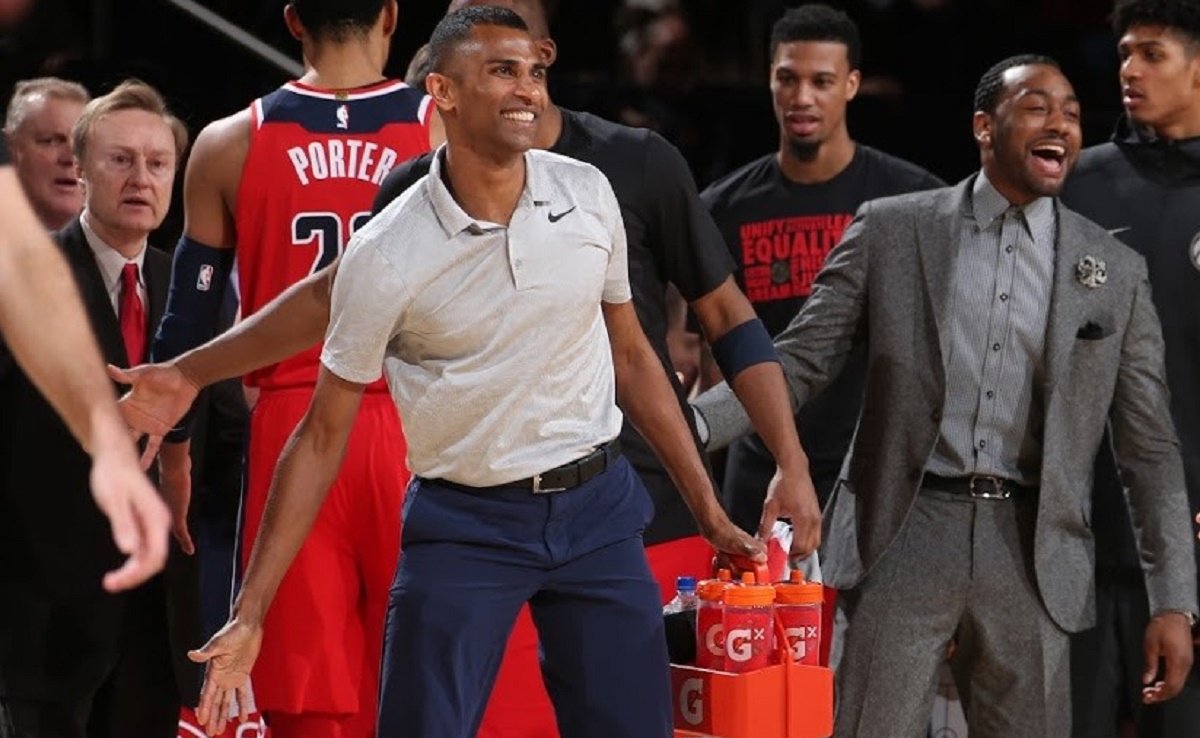
Performance needs are different every day and that optimises the players' performance during a game. It’s comparing a race car to a regular car. Race cars race almost every day, so their needs are very different because they have to optimise performance during a game or a race.
Q: Do you advise using food supplements? Which ones and why?
Hettiarachchi: I do recommend supplements because often we cannot get everything our body needs purely from food. However, my best recommendation is to eat real food – quality food with quality ingredients - that will cover most of your nutritional needs. Then, when you do lab work, it will tell you exactly what your needs are. Then, all we need to do is get supplements to correct that. However, make sure your supplements are third-party tested so they meet quality and safety standards. You know it contains what is listed, and does not contain prohibited substances, and is not full of fillers.
Q: What are the most common misconceptions people have about food?
Hettiarachchi: There are two main misconceptions:
1) You could outwork a bad diet. Bad food is like putting cheap gas in an expensive car. You are going to break down eventually. It is not always going to show up as body fat but as other illnesses and diseases down the road.
2) You need to be on a specific diet to be healthy like being vegan, paleo, vegetarian, etc, because they are following trends or assuming it is good for them because one of their favorite players or idols is doing it.
Q: How many times per week should regular people (not pro athletes) workout?
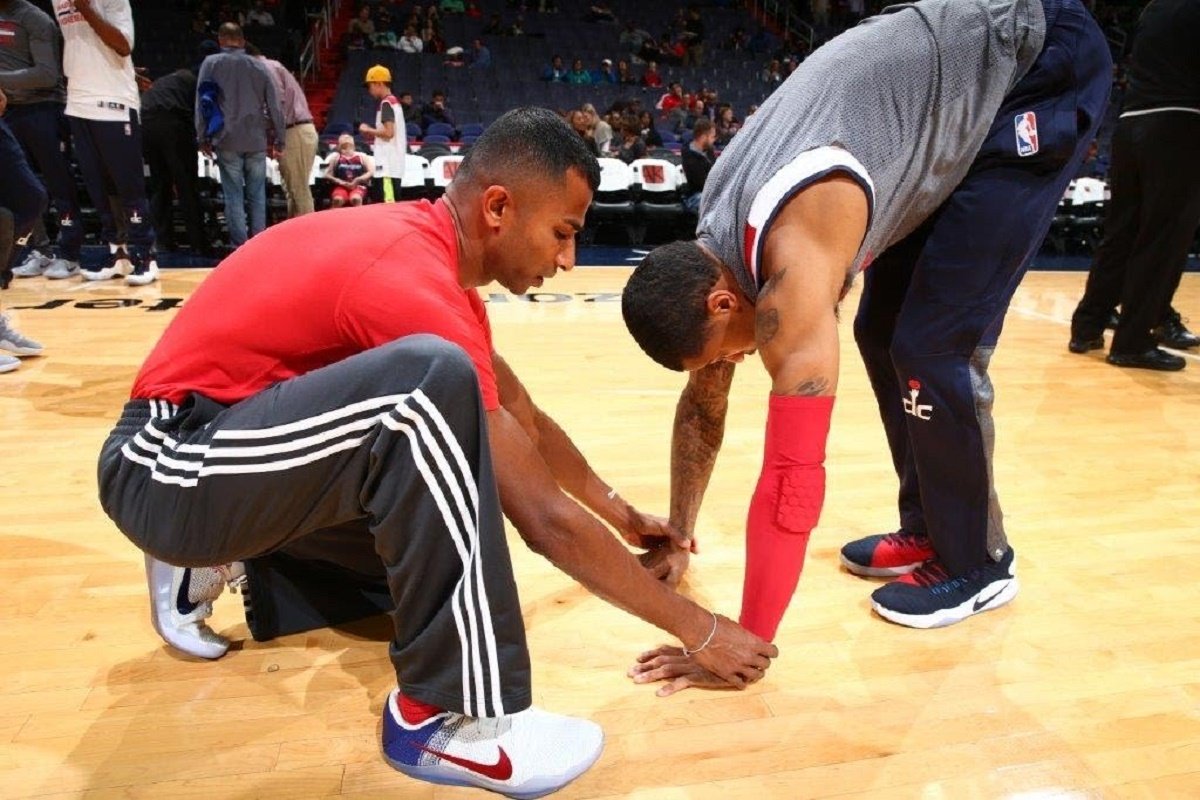
Hettiarachchi: People should do some type of movement every day, but the intensity can be varied. It could be just 10 minutes of movement while watching TV, yoga, long walks, etc.
I’m a big fan of people lifting weights, doing yoga and taking long walks 1-2 times/week. It’s not about the one workout you do each day; it’s the constant movement that you do throughout the day that matters the most. Think about walking while taking a phone call, taking the steps instead of the elevator, stretching and what I call “baby your body” movement on the floor while watching TV, etc.
For people who do cardio/intense workouts every day, they need to learn to take days off to rest and let their body repair. Even pro athletes have rest days so they can come back stronger and perform better. Cardio all the time has no benefits.
Q: What is the best injury prevention?
Hettiarachchi: Movement throughout the day like I explained above. When you regularly do movements, you are more conscious and aware of your body’s movement restrictions and limitations so you will find it easy to identify and work on those tight or restricted areas of your body.
Q: What are your own daily health and wellness rituals?
● I fast on average 18 hours and eat within a six-hour window. What I eat is based on my urine, stool, blood analysis along with my DNA profile. I eat very healthy and stick to real food - not processed.
● My workout is done during the fasting time. It could be cricket, basketball, soccer, yoga, long walk, paddleboarding, etc, depending on where I am that day.
● I try to get outside in the sun as much as I can and 'ground' – that means walking barefoot and touching mother earth. I try to 'ground/earth' in the morning or in the afternoon whenever I can.
● I try to use a sauna or do red light therapy every day.
● I meditate each day for 10-20 minutes.
● I monitor my sleep quality and heart rate variability every day. I also monitor my glucose levels and body fat muscle mass composition as often as I can.
Q: How do you find your way through the information overload on health and fitness topics?
Hettiarachchi: Most experts talk about what they know and understand through their siloed expertise lens so it is mostly one-sided information. I double-check what I read against published research to ensure it is credible.
I also look at information through a different integrated lens because of my expertise in multiple healthcare disciplines. What I read, I filter through my own knowledge and cross reference against research.
Bilal Kashmiri is an independent creative agent for governments, athletes, and celebrities. He currently works as a partnership specialist for Hunar Ghar in Washington DC.




